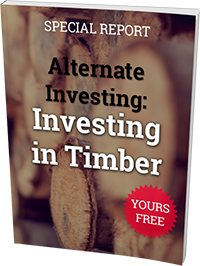I recently opened and funded a 529 College Savings Plan for my six-month old son.
Suddenly, I realized I had a case study of an ideal investment advisory client: someone with a long-term investment horizon who doesn’t need to access the funds any time soon; one who trusts my judgment unconditionally and who could not care less about the stock market’s day-to-day swings.
So what did I do?
First, because of restrictions on these plans, I couldn’t just buy individual stocks that I think would outperform the market over the next two decades.
So I had to restrict myself to general asset classes.
Second, I ignored all of the conventional knowledge about diversification. That’s because I know my son doesn’t care about stock market volatility.
More importantly, I already knew what asset class was most likely to generate the maximum returns between now and 2032.
And that asset class is U.S. small-cap stocks.
That’s why 100% of my son’s college plan is invested in a low-cost, Vanguard U.S. small cap fund.
Paying for College with ‘the Small Cap Effect.’
In a world where “can’t-lose” investment themes get tossed out with remarkable regularity, the “small-cap effect” — the well-established observation that small-cap stocks consistently outperform large-cap stocks over the longer term — is one of the few that has stood the test of time.
It was the University of Chicago’s Eugene Fama, one of last year’s Nobel Prize economics winners, and his colleague Ken French who first posited the “small-cap” effect.
Supported by oodles of market research, the “small-cap effect” has found its way into every introductory text on modern finance and investment.
Perhaps surprisingly, what’s behind the small-cap effect is still subject to debate.
Some argue that it is an example of market inefficiency. After all, small cap stocks aren’t as well covered as household names.
Others say the higher return is just a compensation for higher risk.
Whatever the answer, you’d be hard-pressed to argue that the small-cap effect does not exist.
As David Swensen, head of the Yale University endowment, pointed out, if he didn’t have to consider Yale’s ongoing funding requirements and the trustees’ tolerance for occasional big drawdowns in the value of the endowment, there is no reason he would invest in anything but U.S. small-cap stocks.
The statistics Swensen cites are more than compelling.
Between the bottom of the U.S. stock market in June 1932 and the end of 2006, the return of U.S. small caps rose 159,000-fold. That compares with, say, a return of 19 times principal for “safe” U.S. government bills.
The Small-Cap Effect: All the Time, Everywhere?
Recent experience in the U.S. market confirms both the power and lockstep rigor of the “small cap effect.” Since the U.S. market bottomed in March 2009, the Russell Top 50 index of the largest U.S. companies has risen 202%.
The Russell 1000, covering the 1,000 largest stocks, has gained 205%; The Russell 2000, covering the next 2,000 stocks, is up 233%.
What’s more, the small-cap effect seems to be global. You can find evidence for it particularly in other developed economies.
Since 1955, a U.K. small-cap index offered an annual return of 15.8%, compared with 12% on a broader index.
This 3.8% gap compounded over time makes for spectacular outperformance. Since 1955, the small-cap index has returned 11,605%, compared with 811% for the broader market — a more than 14x difference.
Why You Won’t Go ‘All In’ on U.S. Small-Cap Stocks
So why not just ignore reading investment advice like this and invest in nothing but U.S. small-cap stocks — whether it’s for your six-month old son’s college fund or not?
Truth be told, you probably should.
But it turns out the biggest risk of small-cap investing is not in the companies themselves.
The risk is you.
First, chances are you can’t take the volatility. Small caps are a wild ride when markets take a dive.
Second, small caps tend to underperform large caps on an annual basis about one-third of the time. 2014 is actually one of those years. And if those years come back to back for three or four years, you’d probably throw in the towel, no matter the long-term upside.
Finally, although the psychological challenges of investing in U.S. small caps were great in past decades, they are exacerbated in today’s over-communicated world. The doom and gloomers are likely to get to you eventually, and you’ll sell out (uncannily) at exactly the wrong time.
The good thing is, my son is too focused on learning how to crawl, rather than listen to the latest omens of doom and gloom from Harry Dent or Nouriel Roubini.
The bottom line?
The small-company effect has endured for decades.
And I believe it will continue, thanks to the unchanging nature of human psychology.
My son’s 529 College Savings Plan will serve as a real-life test of that thesis.
In case you missed it, I encourage you to read my e-letter column from last week about a group of stocks with consistently rising dividends. I also invite you to comment in the space provided below.




